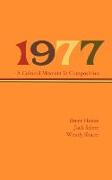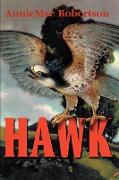- Start
- 1977: A Cultural Moment in Composition
1977: A Cultural Moment in Composition
Angebote / Angebote:
As Debby Boone and Rocky Balboa raised the hopes of a country in financial and political crisis, U.S. colleges sought to meet the needs of a growing and increasingly diverse student body while also responding to the public outcry for tangible results. Within English departments, especially in publicly funded institutions, writing instruction came under heightened scrutiny as politicians and taxpayers wondered "Why Johnny Can't Write." Scholars and teachers of writing responded as best they could to these pressures, conducting research on writing processes, developing new pedagogies better suited than skills-and-drills to new student populations, and slowly establishing themselves as disciplinary professionals within rapidly changing and often tumultuous institutions.
A product of extensive archival research and numerous interviews, 1977: A CULTURAL MOMENT IN COMPOSITION examines the local, state, and national forces (economic, political, cultural, and academic) that fostered the development of the first-year composition program at one representative site, Penn State University, in the late 1970s. Sidebar commentaries from Stephen A. Bernhardt, Hugh Burns, Sharon Crowley, Lester Faigley, Janice Lauer, Elaine Maimon, Jasper Neel, and John Warnock-many of whom were just beginning in the field in 1977-enrich and complicate the story. In the emerging tradition of program-based histories, such as Barbara L'Eplattenier and Lisa Mastrangelo's HISTORICAL STUDIES OF WRITING PROGRAM ADMINISTRATION (Parlor Press, 2005), 1977: A CULTURAL MOMENT IN COMPOSITION offers a counterpoint to broader institutional histories of composition by investigating how local phenomena can be explained by larger movements and how larger movements can be understood through local contexts. -
BRENT HENZE is Associate Professor of English at East Carolina University. His research on the rhetoric of science, reporting genres in ethnological science, scientific institutions, and the scientific treatment of racial difference has appeared in TECHNICAL COMMUNICATION, TECHNICAL COMMUNICATION QUARTERLY, RHETORIC REVIEW, and elsewhere.
JACK SELZER is Professor of English and Associate Dean for Graduate and Undergraduate Studies in the College of the Liberal Arts at Penn State. Currently President of the Rhetoric Society of America, he is the author, coauthor, editor, or coeditor of KENNETH BURKE IN GREENWICH VILLAGE, KENNETH BURKE IN THE 1930S, KENNETH BURKE AND HIS CIRCLES (Parlor Press, 2008), RHETORICAL BODIES, UNDERSTANDING SCIENTIFIC PROSE, and GOOD REASONS. -
WENDY SHARER is Associate Professor of English and Director of Composition at East Carolina University. She is the author of VOTE AND VOICE: WOMEN'S ORGANIZATIONS AND POLITICAL LITERACY, 1915-1930 (2004) and co-editor of RHETORICAL EDUCATION IN AMERICA (2004). Her work appears in several edited collections, as well as in journals such as RHETORIC REVIEW and RHETORIC SOCIETY QUARTERLY.
Folgt in ca. 15 Arbeitstagen




